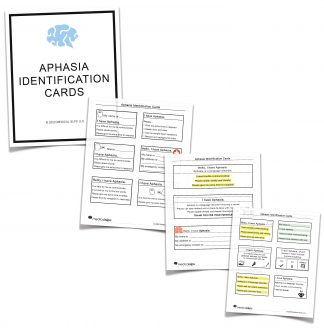Description
PDF document contains 27 aphasia identification wallet cards
Original price was: $9.99.$4.99Current price is: $4.99.
This resource includes 27 aphasia identification wallet cards. Print, personalize, and provide these cards to your clients with aphasia to support daily communication exchanges.
PDF document contains 27 aphasia identification wallet cards
You must be logged in to post a review.

Krystina Sanchez (verified owner) –
Very good cards. Practical.